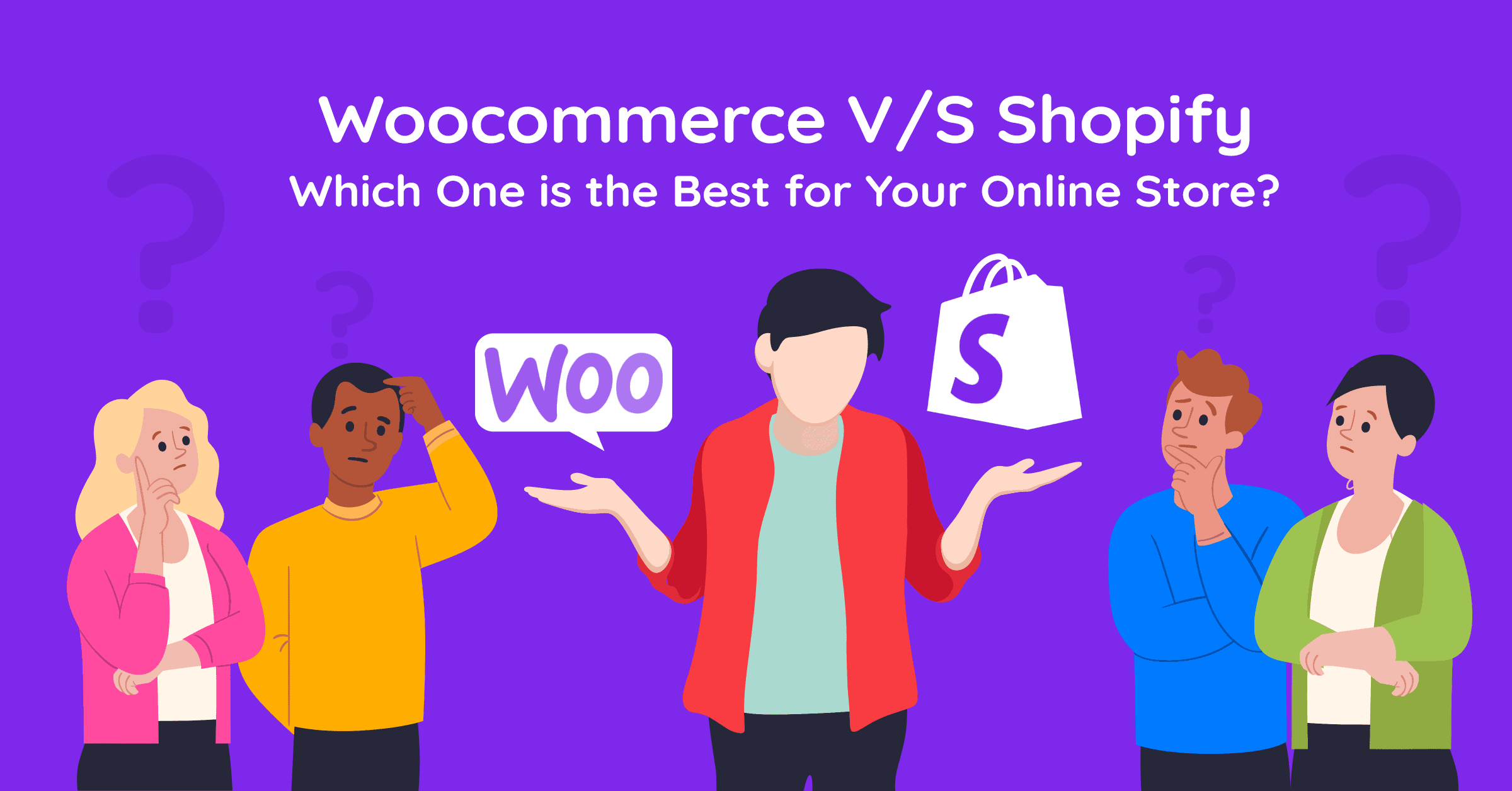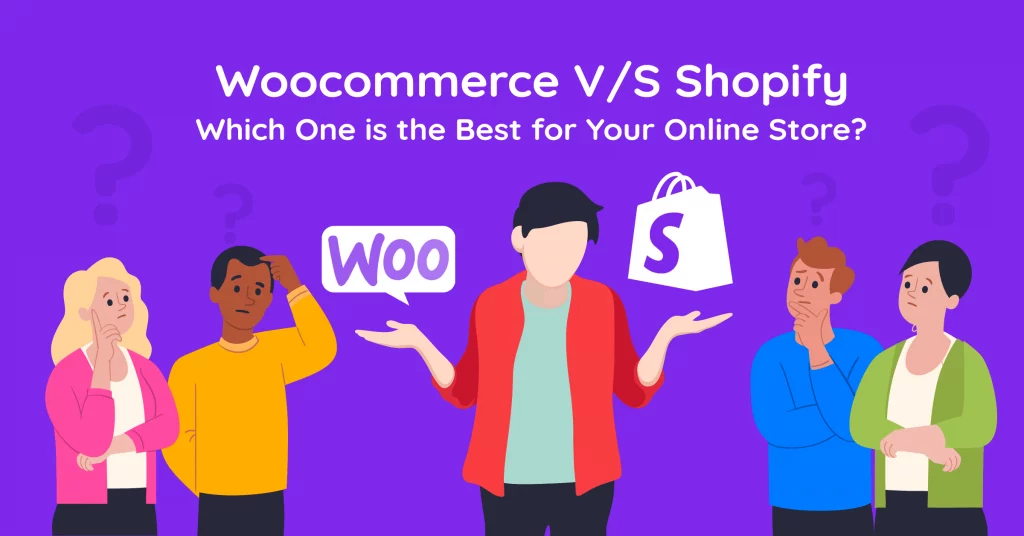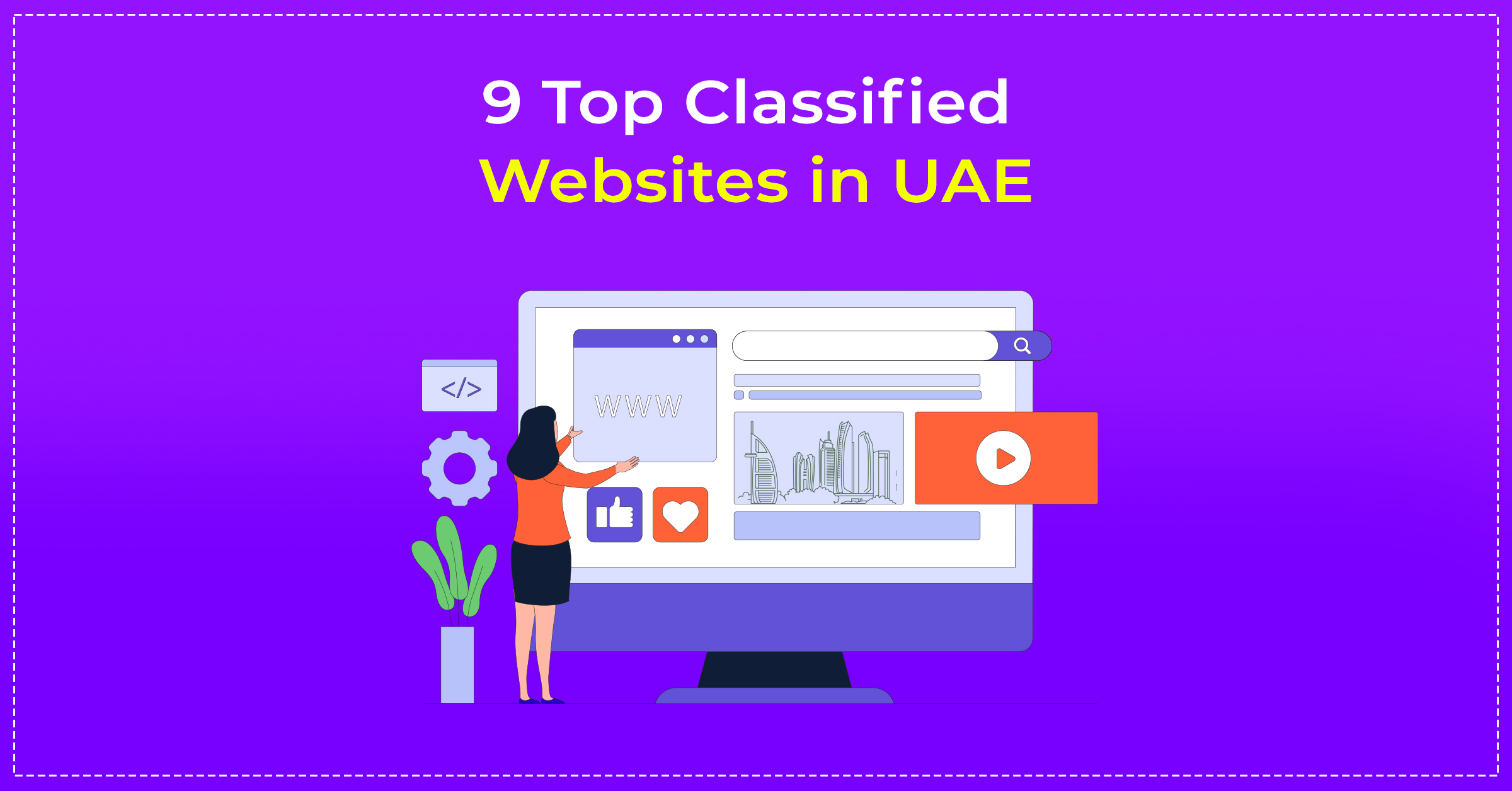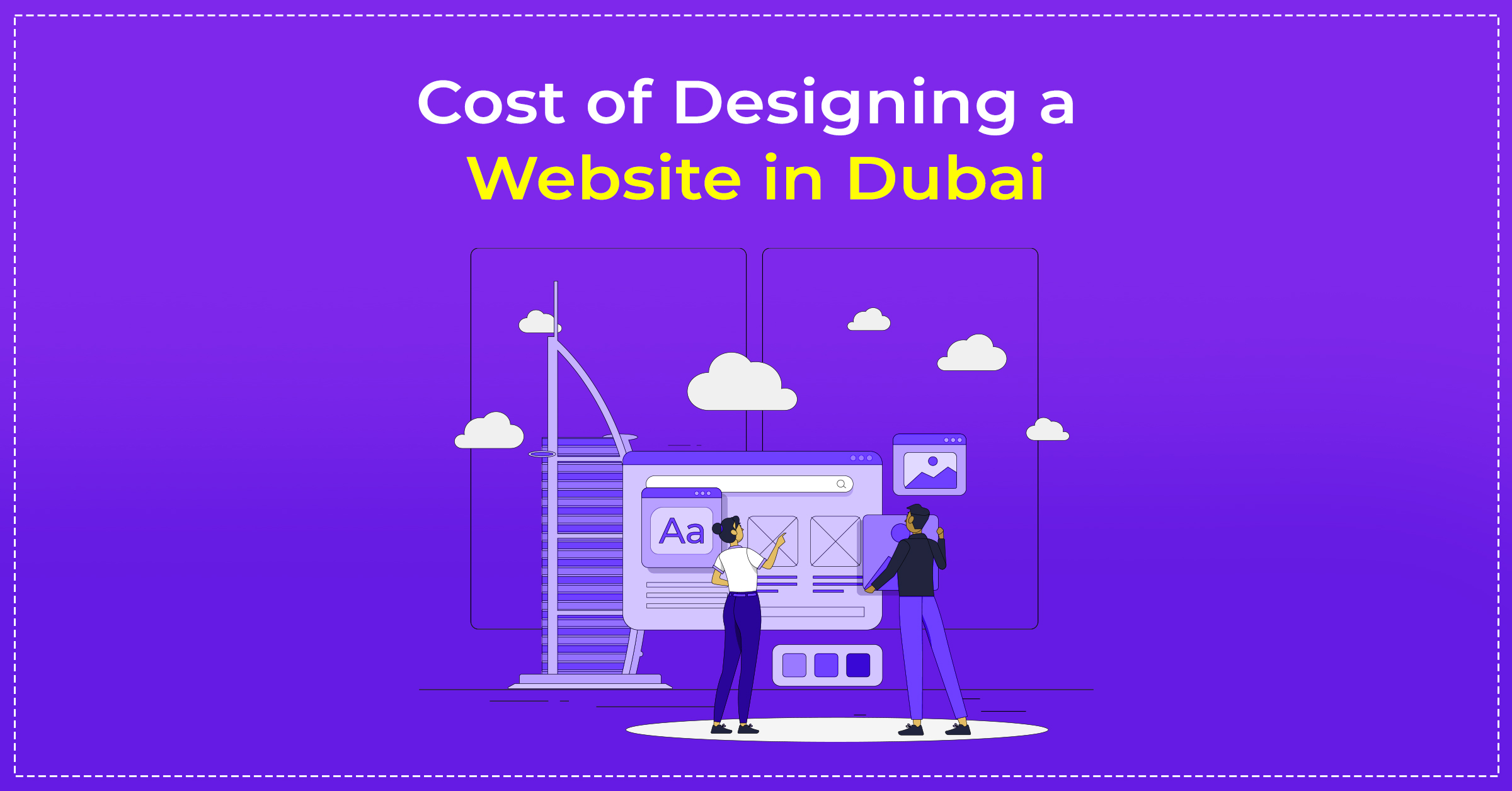This is a comprehensive blog on WooCommerce vs Shopify. We analyze the pros and cons of each of these platforms.
Laying the foundation for your dream eCommerce store? Make sure you have a robust one so that you can take things to a next level, quickly and efficiently. A good eCommerce platform adds vitality to your online business and makes the consumer journey swift and effective. It also helps in scaling your online business with its flawless services.
While looking for a strong eCommerce platform, you might have come across the two eCommerce giants i.e Shopify and Woocommerce. Numerically, these two are the world’s dominating eCommerce platforms. Undoubtedly, both these platforms are the best in the business.
However, choosing the best one among them is not easy as both platforms offer mind-blowing features and technical support.
Shopify gives you an all-encompassing package in the form of easy and ready-to-use tools and software. It helps you get the ball rolling and set up your eCommerce store in a short span of time. But, you may not get complete control over granular things on your website.
On the other hand, WooCommerce gives you the liberty to build your dream online store and give it a seamless personalized touch. This is a crucial aspect and can help you fulfill your long-term business goals. From technical infrastructure to visual appearance, you define the best-in-class for your eCommerce store.
WooCommerce vs Shopify? This detailed blog will help you make the right call for your eCommerce website development.
First, let’s start by understanding the basics of both platforms.
What is Woocommerce?
In simple terms, Woocommerce is an eCommerce platform that can turn your WordPress website into a full-fledged online store.
Since WooCommerce is self-hosted, you can access every data of your online store encapsulated in your server. Furthermore, the platform also gives you the freedom to customize every aspect of your online store as per your likes!
With the unmatchable performance of the CMS tool offered by WooCommerce, you can grow your online store without any hassles. Develop a content-led WordPress website, grow organic traffic, and later you can convert it into a growing eCommerce website with WooCommerce. Sounds like a great business idea? So, Get, Set, Go!
What is Shopify?
On the other hand, Shopify lets you create your online store from scratch without worrying about its technical dimensions. Shopify is “hosted” in nature which means it hosts and manages your online store.
Though you do not have to worry about the backend work with Shopify, you have limited access to data and designing segments of your store.
Creating an online store on Shopify is much easier as it requires you to only sign up, choose the plan and set up your online eCommerce platform. You can even straightway start monetizing your online store with Shopify.
That was a brief overview of both the eCommerce platforms. Let’s compare their features to get the best fit for your online business!
WooCommerce Vs Shopify: Pros & Cons
WooCommerce Pros
- It has a vast library of plugins
- It offers complete control and customization
- A plethora of themes and designs to make your store visually appealing
- It is simple to configure on WordPress
- It is an open-source plugin with great flexibility
- Vast developer community
WooCommerce Cons
- It does not include a free domain and hosting
- Dependency on plugins is quite high
Shopify Pros
- It handles everything from security to maintenance
- Enables you to add unlimited products to your store
- It provides 24/7 support through emails/live chat
- It includes built-in tools to handle all requirements of your e-commerce store
Shopify Cons
- You’re stuck with monthly subscription plans
- It charges a specific transaction fee for processing transactions
- You need to migrate to other costly plans or Shopify plus to scale up
- It does not provide granular control and customization options
WooCommerce v/s Shopify: The Ultimate Comparison
1. Pricing and Plans
We always want extra output from minimum input, don’t we? Let’s see if it’s the case with eCommerce platforms too!
WooCommerce
WooCommerce in itself is FREE which means there is no fixed pricing system on the platform. It doesn’t mean you do not have to pay any charges at all. You may have to pay for a domain, hosting, and plugins
Unlike Shopify, you do not have to pay recurring fees every month on Woocommerce.
Moreover, WooCommerce does not charge any sort of transaction cost. Additionally, with Woocommerce you can restrict the use to free plugins and keep a check on the overall costs.
Shopify
Shopify has a systematic and recurring pricing system. It offers 3 pricing plans which are as follows.
- Basic Shopify $29 per month
- Shopify $79 per month
- Advanced Shopify $299 per month
All these plans include the charges of the domain, hosting, and SSL certificate. However, you have to additionally pay for plugins and extensions on Shopify. This leads to a further increase in your costs incurred on the platform.
Payments also affect your costs to a large extent. Though Shopify offers its own Shopify Payment solution, it charges 2.9%+ 30 cents per transaction.
Moreover, Shopify additionally charges a 2% transaction cost (if you use third-party payment gateways) on every sale of your online store.
Who’s the winner? WooCommerce is undoubtedly the winner in terms of prices and costs.
2. Design & Themes
Looks matter a lot, especially in the digital world! A visual appearance can absolutely make or break your website. So, put in extra efforts to make sure that you leave a lasting first impression.
Shopify
Shopify themes have a visually appealing aesthetic and a myriad of coloring options to choose from, making them a perfect choice for new-age and modern websites.
Each theme has a unique variation. This is because Shopify does not create its themes in-house. The design is outsourced to expert professional web designers.
However, the premium Shopify themes cost as high as $180. They do offer a bang for your buck as there is a theme editor within the Shopify platform that you can use for customization.
You can hide some sections of your store that you do not wish to showcase on the front-end. With Shopify’s special liquid code, you can even make substantial changes to your themes to stand out from your competitors.
WooCommerce
With Woocommerce, Sky’s the limit! There are thousands of WordPress themes and plugins specifically suitable for Woocommerce stores. The cherry on top of this is the flexibility to work on a variety of page builders.
Page builders are the tools installed on WordPress to design web pages. Some of the most popular page builders for WooCommerce are Elementor, WPBakery, Divi, etc.
You can select any WordPress themes (free or paid) of your choice and make them work on the WooCommerce platform. Such is the adaptability of the WooCommerce platform that it can fit in with all WordPress themes in the market. All these themes are fully responsive on mobile and desktop. These themes also give your store a premium and neat look.
It also has its online theme store called Storefront where you can select paid themes as per your choice. WooCommerce definitely scores a point over Shopify when it comes to design as all the themes in the market are compatible with the Woocommerce platform and not just the ones available on its online theme store. In short, it is a versatile platform.
3. Security & Privacy
Security and safety should be the foremost priority of your website. As an eCommerce website owner, you not only sell products online but also get access to your customer’s data. Hence, you need to make your customer’s payments encrypted and their data secured.
WooCommerce
WooCommerce is a self-hosted platform and works with WordPress. It does not come with built-in security, you will have to handle the security either by yourself or with the help of your hosting provider.
Woocommerce does not provide its SSL. You will have to get your security system in place including the SSL certificate. However, some hosting companies even provide SSL certificates for free. Moreover, you can use free and paid plugins such as Wordfence, JetPack Security, WPScan, etc. to upgrade your security in a matter of a few minutes and clicks.
SSL certificate and PCI-DSS compliance are the foundation of security. By following a few basic steps, you can get top-notch security in place on your Woocommerce platform. So rest assured, you’ll just have to go an extra mile and things will fall in place!
Shopify
Since Shopify is a hosted platform, it safeguards you from hackers and keeps your information protected. Its own service and platform take care of your security. Shopify also comes in with a built-in SSL certificate.
There are 2 main benefits of an SSL certificate – Security and SEO. Your personal information is secured if the website has an SSL certificate. Moreover, it also ensures a safe browsing experience for your customers.
Shopify has PCI-DSS and GDPR compliance. With Shopify, you can directly start processing your debit and credit card payments.
For Security and Privacy, both platforms do great and score equal.
4. Payment Methods
Any online store must have a reliable solution to accept payments from external payment gateways. Your e-commerce platform needs to support credit card payments, ideally, with no excessive fees for you.
Woocommerce
The best thing about WooCommerce is that it does not charge any transaction fee when you use a third-party payment gateway, unlike Shopify. Think of the amount your customers can save on every order. Now, you know which one to choose, don’t you?
What’s more? WooCommerce has support for all the payment gateways including even the local payment gateways and the less popular ones.
When you use the Woocommerce platform, you are only charged a transaction fee by your payment gateway, Woocomerce does not charge any commission. Woocommerce also has its own payment solution. If you’re a large eCommerce store, using the WooCommerce platform can be beneficial for your customers as they can end up saving a lot of money on every order.
Shopify
Shopify offers 100+ payment options to choose from and it also has its own payment solution known as Shopify Payments.
However, the biggest drawback of Shopify is that it charges an extra 2% fee on each transaction made through third-party gateways. You can reduce this fee to 1.5% but even for that, you have to subscribe to an Advanced Shopify plan that comes at 299 dollars per month.
5. SEO
SEO is one of the best ways to boost your eCommerce sales. It’s not only an effective but a highly affordable long-term growth hacking strategy. A well-defined and thoroughly executed SEO strategy can lower your customer acquisition cost. It also leads to easy conversions and helps you optimize the bottom of the funnel marketing.
WooCommerce
WooCommerce is a plugin built on a dedicated platform of WordPress. Hence, it leverages WordPress and other third-party plugins like Yoast SEO. Yoast is a renowned SEO plug-in and it also acts as your in-house SEO expert.
You can customize your URLs, add keywords to your title and meta descriptions. Yoast plugin-in also provides automated recommendations for rich snippets like optimal keyword density, readability, and more. It is simple to use, effective and enhances your organic traffic.
Overall, WooCommerce gives you more SEO advantages and makes your on-page SEO optimization effective and impactful.
Shopify
Shopify provides limited SEO features compared to WooCommerce. Though you can easily add basic information like product title, alt text, and meta description, the features are restrictive and SEO on the Shopify platform can seem to be a hindrance in the long run.
In Shopify vs Woocommerce, Woocommerce clearly has an advantage over Shopify in the SEO game thanks to WordPress’s vast library of SEO plugins. Moreover, WordPress & its community also offers useful SEO guides and recommendations that are unparalleled.
6. Scalability
But will this idea scale? The aphorism is not just a meme but it is quite relevant in the business world. Woocommerce vs Shopify – are these platforms scalable? Will these platforms be equipped to handle large volumes of traffic and orders? Let’s see where these platforms stand when it comes to scalability.
WooCommerce
Since WooCommerce is a self-hosted platform, you can manage growth and optimize the store as per your requirements.
You can continuously monitor the technical performance of your website and add/remove any functionality for optimal performance. In this way, you have more control over the customization of your website.
Shopify
With Shopify, the technical infrastructure of your store remains rock solid. It takes care of your website’s security, privacy, and performance. However, all these facilities come with a bumper cost.
You’ll have to opt for a Shopify Plus plan. Post that, your Shopify store will be highly scalable and efficient. It will work without any technical glitches and you will not have to worry about security issues and updates.
Overall, you will have to spend a good amount of money to make your Shopify store well-equipped to handle growth.
7. Customer Support
Customer support is a critical issue when choosing an e-commerce platform for your online store. Regardless of whether you are a professional or beginner, you might need help at some stage of your business.
Woocommerce
WooCommerce is an open-source plugin. That means you can get customer support from the default support forum.
WooCommerce has a powerful community of developers, peers, and Woo experts in case an unwanted contingency happens. There is a high probability that your error or bug can be easily resolved by going through the Q&A section of the forum. Alternatively, you can even post your questions and someone will revert back to you.
Shopify
Shopify is a subscription-based platform. You can expect a dedicated support team for all your queries. Shopify has renowned excellent customer support, which is available 24/7 for phone, email, and live chat.
Apart from that, you can also access an extensive knowledge base that covers some common user queries and solutions.
Shopify support is highly personalized to your request and is attended by their in-house tech team itself.
WooCommerce Vs Shopify: Our Verdict
Both WooCommerce and Shopify are great eCommerce platforms. However, in our opinion and experience, Woocommerce steals the battle with its flexibility, pricing, scalability, and SEO benefits.
WooCommerce platform fits in well with your marketing strategies as well. If your plan is to drive organic traffic through Content, with its top-notch SEO integrations, the WooCommerce platform will be the perfect fit.
Moreover, you can also have full control over design, plugins, security, and other parameters. If you have some unique ideas for your online business that also needs a touch of customization, look no further than Woocommerce!
Bottom Line
You should also take into account your overall vision for the business and what expertise you currently hold. Still, confused about which option to choose?
You can get on a free consultation call with our team of technical experts at Eiosys. We will understand your business goals and recommend a customized solution that is perfectly aligned with your vision. Not just executing, we provide you full assistance in maintaining your eCommerce store and helping your online retail business scale new heights! Check out our website development solution.
























